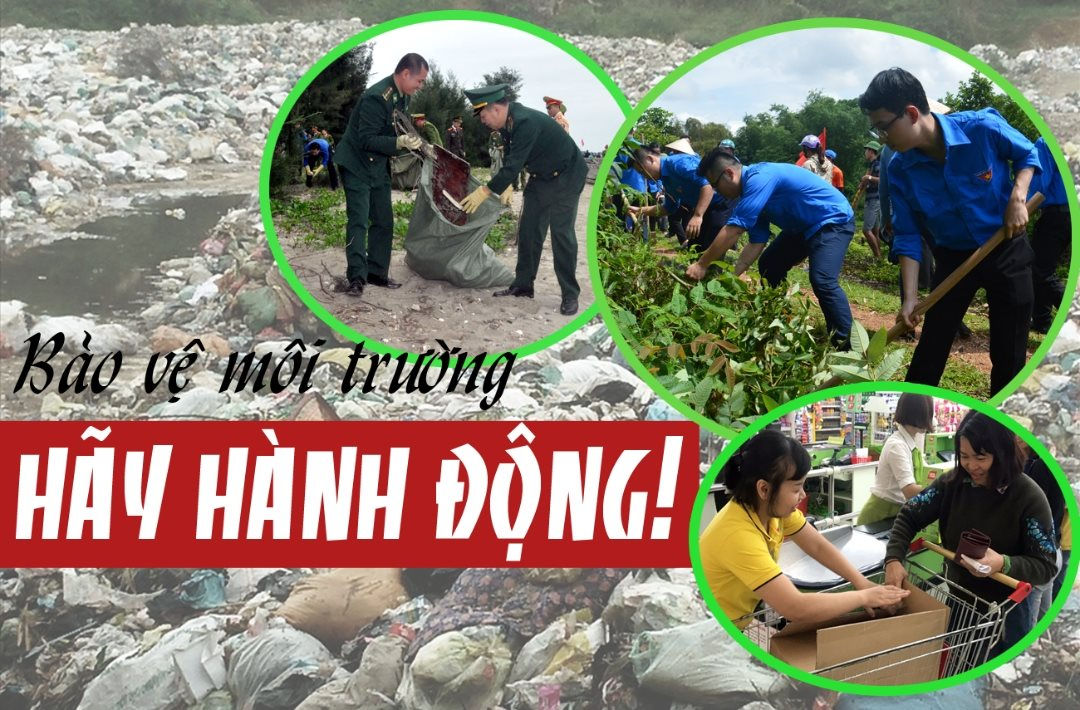Waste pollution has become a pressing problem, given the consequences it causes on environment, ecology and human health. The ministry of natural resources and environment, with functions of State Management of Environmental Protection, is weighing a wide range of coordinated solutions to prevent waste-inflicted risks.
(SOURCE: NATURAL RESOURCES AND ENVIRONMENTAL NEWS)
According to the Viet Nam Environment Administration (Ministry of Natural Resources and Environment), the total volume of domestic solid waste in Viet Nam is 25 million tons per day, 30% of which is burned in incinerators or reused for compost production, while 70% is buried in the landfills. In Ha Noi, 6,000 tons of waste is generated every day. The burial rate in Ha Noi is 90%, while in Ho Chi Minh City roughly 70%. Plastic waste is observed in 8-12% of waste, and increasing year by year. This forces the environment to experience an enormous burden.
Developing and improving legal requirements on waste management
In order to manage domestic solid waste and plastic waste, the Ministry of Natural Resources and Environment has shifted its focus to reviewing, developing, finalising and incorporating solid waste management plans into national environmental protection plans; developing and finalising environmental standards, economic norms and techniques for collection, transportation, treatment and disposal of solid waste; addressing single-use and non-biodegradable plastic issues.
The Ministry has also advised the National Assembly, the Government and the Prime Minister on environmental protection or promulgated, based on its functions and powers, many legal documents related to environmental protection, particularly management and treatment of domestic solid waste. Legal documents include Decree no. 38/2015/NĐ-CP on waste and scrap management (amended and supplemented in Decree no. 40/2019/NĐ-CP); Law on Environmental Protection; National Technical Regulation on Wastewater of the Solid Waste Landfill Sites – QCVN 61-MT:2016/BTNMT; National Action Plan for Marine Plastic Debris Management in Viet Nam by 2030. The Ministry also proposed that the Prime Minister review and promulgate Directive on the enhancement of the management of imported scrap, including scrap plastic; and Directive no. 33/CT-TTg dated August 20, 2020, on the enhancement of the management, reusing, recycling, treatment and minimisation of plastic waste.
The Ministry of Natural Resources and Environment and the Ministry of Finance proposed the National Assembly to approve the Law on Environmental Taxation, specifying that non-eco-friendly plastic bags must be subject to environmental taxation (environmental taxation on non-biodegradable plastic bags is VND50,000 per kg). The Ministry of Natural Resources and Environment also worked with the Ministry of Construction to suggest the Prime Minister issue Decision no. 491/QĐ-TTg dated May 07, 2018, on the adjustment of the National Strategy on Integrated Solid Waste Management to 2025, with a vision to 2050. In the adjusted version, the national strategy shall stress the importance of using environmentally friendly plastic bags as replacements for non-biodegradable plastic bags and limit and cease the import, production and supply of persistent plastic bags in shopping centres and supermarkets.
Working with localities to raise awareness
The Ministry of Natural Resources and Environment, along with policy development, has actively worked with local authorities and socio-political organisations to raise public awareness about environmental protection, explained Mr. Hoang Van Thuc, Deputy Director of Viet Nam Environment Administration. Particularly, the Ministry and the Provincial People’s Committee has guided and organised the collection and treatment of domestic solid waste and plastic waste; worked out a plan and organised the collection and treatment of floating plastic waste (in rivers, streams, canals, beaches and coastal fishing ports); developed and implemented good models related to the management of single-use and non-degradable plastic waste that align with local characteristics.
Minimisation of plastic waste must start with habit change. To do so, the Ministry has turned the spotlight on communication programs to raise public awareness on the detrimental effects that single-use plastics have inflicted on the environment, ecosystem and human health; regularly launched Anti-Plastic movements; promptly rewarded individuals and organisations making a meaningful contribution to anti-plastic movements or valuable initiatives; replicated good models of collection and treatment of domestic solid waste as well as anti-plastic models.
The Ministry expects to continue to advise the Prime Minister on the Scheme “Strengthening domestic solid waste management in Viet Nam” and on the Directive “A number of urgent measures to strengthen solid waste management”. The aforementioned Scheme and Directive will target comprehensive and coordinated solutions to enhance the management of solid waste and plastic waste in Viet Nam towards local and national environmental standards.

